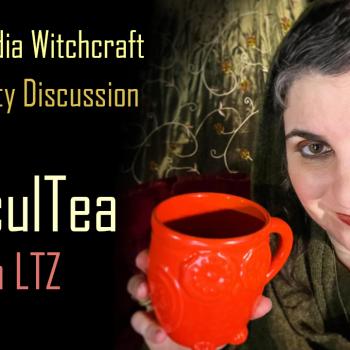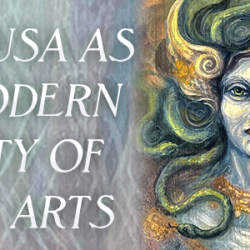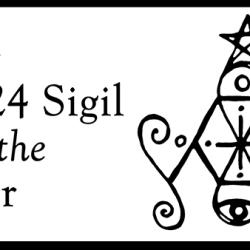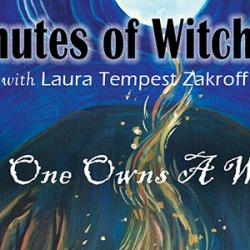
“Sticks and stones may break my bones, but words will never hurt me.”
This childhood retort never really solved anything, did it? In fact, it pretty much was a declaration that someone had indeed hurt you through their words.
Because at the root of it all, words have power. In ritual, we speak words to declare our intent, to create sacred space, to acknowledge spirits and deities. Spellcraft often involves the uttering of words to bring a working together – be it a rhyme, psalm, or prose. Behind those words are ideas: the culmination of history and experience, the focusing of will, the exchange of the sacred and spiritual. The formulation of ideas into words, which are then built into statements, is then followed by action. Magick doesn’t happen so much because we say the words in just the right way under the right conditions, but rather because behind those words is a desire to bring about change. And if our will is strong enough, we follow through with our statements by making change happen – in ourselves and in the world around us.
In the Modern Tradition, we don’t identify magick/spellcraft as positive/negative or black/white. Behind every action, idea, there are a multitude of possible reactions – many beyond our imagination, and whether something is “good” or “bad” is directly subject to one’s beliefs, position, and history. We can brainstorm many of the possible outcomes, but never will see them all in advance – so we understand that’s a risk we are taking responsibility for when we work our magick. The best of intentions can cause pain and suffering, and inversely, even the most malcontent intentions can bring about beauty and growth. Our moral guidelines are fairly simple: Know Thyself, Accept Responsibility, Maintain Balance.
With that in mind, it may not be so surprising when I tell you that I see writing as an extension of my activities as a Witch. I believe that the sharing of knowledge and experience, ideas and feelings can shift understanding and awareness. When we become aware of new ideas outside of our own experience up until that point, we can take that opportunity to learn and to grow. It’s a form of shape-shifting, of bending existence, and altering states of consciousness.
I have no delusions of thinking that my writing will open the hearts of those who have resolved to be brick walls of hate (though there’s always a slim possibility in the right circumstances). While it’s their words and actions that I buck against, it’s the vast field of folks who exist in the middle of things that my words are intended for. Those who may not know, those who are open to learning, thinking, and debating, those who are curious: these are the people I write for.
Quite simply, the way we fight intolerance, hate, and bigotry is through ideas. First we become aware of an issue in our periphery, then we find out more about it as it continues to ping across our radar, then we open up our own understanding of it, and make personal changes to allow for growth.
For example, maybe the experiences of LGBQT folks, the issues faced by Pagans of Color, or the topic of cultural appropriation hadn’t affected you personally or your community before you first read about it online or saw panels devoted to it a conference, but since then maybe you’ve become more conscious, more thoughtful, more inclusive, and a better ally. It’s not about pointing out the wrong from a place of self-righteousness, but looking to see how we can all work together to do it better. The changes made within one person then affects those around them, and ideas can spread.
Ideas through words can indeed cause hurt and pain – mentally, emotionally, and spiritually, and furthermore – the actions that driven by those words can cause more pain physically as well. Which is why it is essential and so desperately vital that we teach the words of love, understanding, compassion, and beauty. If we choose to teach these words instead of those of hate, intolerance, and othering, we teach the actions of love, foster understanding, bring the spirit of compassion, and conjure beauty.
Blessed be.













